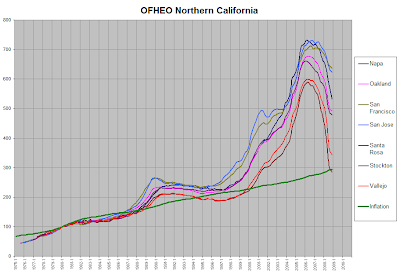I am reading Stephen Ellis's fantastic paper (
sub req.) on the evolution of "
West Africa's International Drug Trade," one of the most detailed and insightful analyses I've seen of the social, economic, political, and historical contexts for the rise of deviant globalization.
The paper is worth reading in its entirety, but I'd like to take this chance to riff on some of the political themes that Ellis alludes to but does not develop fully. Ellis notes that deviant globalization thrives in political contexts where there is "ineffective policing, governments who have a reputation for venality, and a relative lack of international attention" (p. 194). The point is deeper than merely the banal insight that corruption and crime go hand in hand. Rather, there is a broader political context for deviant globalization, in that black market economies both reinforce and are reinforced by "local authorities operating unofficial networks of governance rooted in local social realities" (p. 195).
Generalizing these insights, we can observe that deviant globalization undermines the authority of the central state by focusing the production and reproduction of political capital on local rather than national-level institutions. This is precisely why the UN Office of Drug Control, for example, argues that crime "hinders development." But this is true only if we insist on conceiving of "development" in the mainstream sense that pervades the thinking of the United Nations, the US government, and most "development" NGOs. In this mainstream sense, which has a hoary intellectual history, "development" is predicated on (if not, indeed, coterminous with) the extension of centralized state authority.
Of course, that mainstream conception of "development" is at odds with the ambitions of locals (and not just elites) for whom the central state does often literally less than nothing for them. The empowering of the centralized state is, for many deviant globalizers, simply a way to improve the capacity of remote elites to rob them. And while that might strike the UN as a laudable definition of development, you can understand why, say, Afghan opium farmers would take quite a different view of what "development" means.
For most poor people, insofar as "development" means anything, it is not about state authority per se, but rather about more practical matters like earning money and getting social services such as education, infrastructure, health care, etc. Among mainstream developmentalists, however, the myth still is that the state is the institution that delivers such services, but the truth is that the post-structural adjustment state (that is, most Third World states today) is at best intermittantly effective at delivering such services.
In most places, the rolled-back post-neoliberal state has been the reality for so long that people's political ambitions are no longer focused on state-building or state-capture (except, perhaps, to take over the rents that accrue to running a kleptocratic state). Over the last 20-30 years, what has collapsed is a grassroots belief that a "modernizing" or "developmental" state will be the primary vehicle for improving the lives of the masses. A state-centric conception of development may still animate some elites in Washington, New York, or London, but in most of the rest of the world, the people have, shall we say, moved on. Having made a virtue of post-SAP necessity, deviant globalizers now actively prefer to operate in "crippled state" environments.
The goal for such actors remains what it ever was: to make a living and to increase their political authority and autonomy. What has changed is the mechanism, and one of the most popular ones has been to join up in illicit economies, where participants can make windfall profits by arbitraging the moral compunctions of the West. This has been going on for so long by now that this alternative mode of "development" (if that term still means anything so redefined) is spawning a set of political commitments that are orthogonal to traditional national ones. Tip O'Neill's famous observation that all politics is local has never been more true than in today's deviantly globalized world.
Finally, one cannot overemphasize what a huge ideological shift this redefinition of development represents -- a complete sea change from the Marx-inspired revolutionary ambitions of yesteryear's underclasses. As Jon Lee Anderson notes in his
New Yorker article on Rio's gangs, quoting
a former Marxist guerrilla turned politician:
"Nobody wants to make revolution anymore. What these people with the guns want today is their immediate share of the consumption culture. It's so childish, and morally childish, and they kill like children too--like in a kid's war game" If they ever acquired an ideology, they could threaten the state, he said. "For now they are a totally entropic and anarchic group of young people who have figured out how to get what they want, which is basically, clothing cars and respect."
Indeed what has happened in Rio applies, in varying degrees, throughout Latin America--most notably in Mexico, Guatemala, El Salvador and Colombia. Two decades after the collapse of Communism, the region's Marxist guerillas have disappeared, only to be replaced by violent drug mafias.
So, to end this long post with another thought that could be the subject for an equally lengthy post, the answer the question "Who won the Cold War?" is that the gangsters did.










